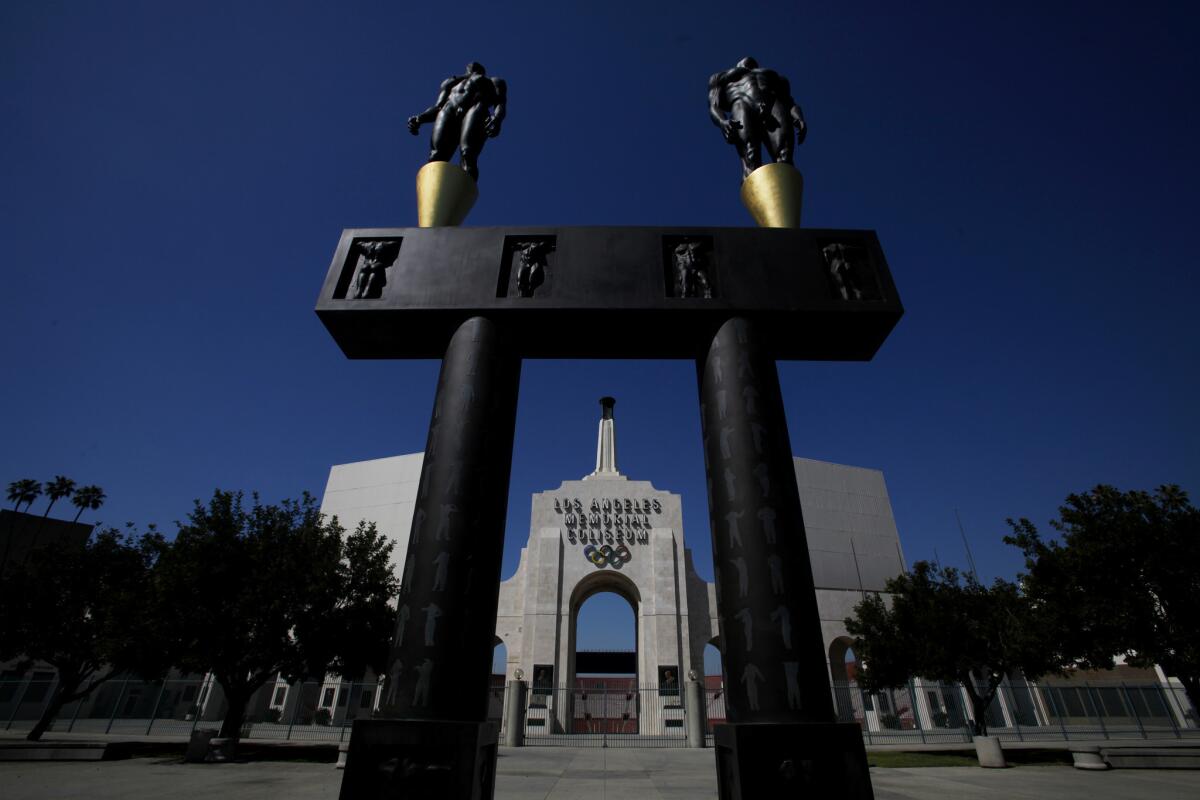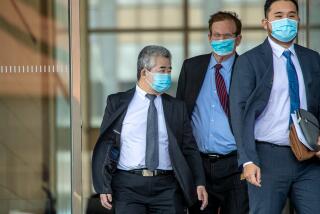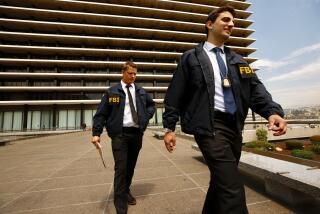Trial delayed in L.A. Coliseum corruption case

The L.A. Coliseum’s former event manager is charged with taking at least $1.9 million from two concert promoters in exchange for helping them stage raves and keeping their costs down
A judge on Wednesday pushed back the trial start date in the Los Angeles Memorial Coliseum corruption case until next year.
L.A. County Superior Court Judge Kathleen A. Kennedy’s ruling to delay the trial — scheduled for this summer — until March 11, 2016, came on the heels of a hearing over defense allegations of “outrageous prosecutorial misconduct.”
In May, the district attorney’s office filed a motion explaining that the prosecutor and investigator on the case had been replaced “in an abundance of caution” after defense attorneys argued that Deputy Dist. Atty. Dana Aratani violated the rights of a defendant by viewing emails he exchanged with his attorney.
Kennedy refused to dismiss charges or remove the district attorney’s office from the case — both requests made by the defense. But during a court hearing earlier this month, the judge chastised the district attorney’s office, saying she was shocked that prosecutors in the office’s Public Integrity Division, the unit handling the case, didn’t have proper training to handle evidence that could potentially fall under the attorney-client privilege.
“You simply can’t do what was done in this case,” she said.
The Coliseum scandal grew out of a series of Los Angeles Times reports that began in 2011.
The three defendants are accused in an alleged bribery and conspiracy scheme. Todd DeStefano, the stadium’s former event manager, is charged with taking at least $1.9 million from two concert promoters — Pasquale Rotella of Insomniac Inc. and Reza Gerami of Go Ventures Inc. — in exchange for helping them put on raves and keeping costs down
In court documents, prosecutors described DeStefano as a “tireless advocate” for keeping raves at the stadium complex even after a 15-year-old girl died after overdosing on Ecstasy at Insomniac’s June 2010 Electric Daisy Carnival rave. DeStefano, who at the time was overseeing promoters as part of his government duties, resigned shortly after The Times began inquiring about his relationship with Insomniac.
During Wednesday’s hearing, Gary Jay Kaufman, who represents Rotella, told the judge that he was eager to go to trial as soon as possible, but said he agreed to the March date because it meant the case could remain in Kennedy’s courtroom.
The judge explained that the March trial date was necessary to accommodate her packed schedule, as well as those of the attorneys.
Kennedy is also presiding over the so-called Grim Sleeper serial killer case, which is expected to go to trial in September.
Times staff writer Stephen Ceasar contributed to this report.
For more news from the Los Angeles County criminal courts, follow @marisagerber
More to Read
Start your day right
Sign up for Essential California for news, features and recommendations from the L.A. Times and beyond in your inbox six days a week.
You may occasionally receive promotional content from the Los Angeles Times.







